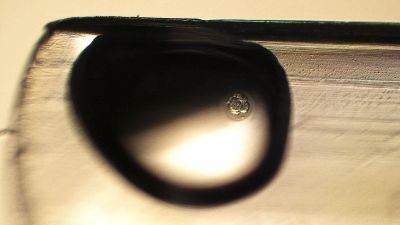Scientists create synthetic human embryos without egg or sperm

Scientists have created synthetic human embryos without the need for an egg or sperm.
Instead, researchers have used stem cells – a move experts believe may help in the study of illnesses, genetic disorders or recurrent miscarriage.
The work falls currently falls outside UK legislation, and experts say it raises "profound" ethical and legal issues.
Prof Magdalena Zernicka-Goetz, from the University of Cambridge and California Institute of Technology, described fostering the embryos to a stage just beyond the equivalent of 14 days of development for a natural embryo at the International Society for Stem Cell Research’s annual meeting in Boston on Wednesday, according to The Guardian.
The structures do not require eggs or sperm, do not have a beating heart or beginnings of a brain but contain cells that would typically develop to form the placenta, yolk sac and the embryo itself, according to the newspaper.
Dr Ildem Akerman, associate professor in functional genomics at the University of Birmingham, said "in theory, these cells also have the potential to develop into an embryo". She said the work has "significant implications" and "will provide scientists with a model to investigate the events that occur during the initial 14 days of life."
She added: "Up until now, we have only been able to observe such processes in animal models like zebrafish and mice.
"Having this knowledge can be immensely valuable for regenerative medicine, where scientists aim to generate different cell types from stem cells (such as pancreatic beta cells for people living with type 1 diabetes).
"It can give us valuable insights into genetic disorders. Additionally, it can contribute to the advancement of IVF technologies."
Prof James Briscoe, associate research director at The Francis Crick Institute, said it is not possible to comment in detail on the scientific significance without a peer reviewed paper but said synthetic models of human embryos based on stem cells have “a lot of potential”.
He said: "They could provide fundamental insight into critical stages of human development."
However, Prof Briscoe said it raises “profound” ethical and legal questions.
He added: "Unlike human embryos arising from in vitro fertilisation, where there is an established legal framework, there are currently no clear regulations governing stem cell derived models of human embryos.
“There is an urgent need for regulations to provide a framework for the creation and use of stem cell derived models of human embryos.”
He said it is important that research and researchers proceed “cautiously, carefully and transparently".
“The danger is that missteps or unjustified claims will have a chilling effect on the public and policymakers.
“This would be a major setback for the field.”
Want a quick and expert briefing on the biggest news stories? Listen to our latest podcasts to find out What You Need To Know...